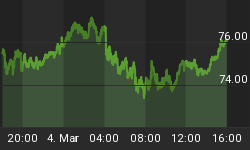The following is part of Pivotal Events that was published for our subscribers Thursday, September 18, 2008.
SIGNS OF THE TIMES:
Last Year:
"While I was aware that these [questionable] practices were going on, I had no notion of how significant they had become until very late. I really didn't get it until late in 2005 and 2006."
- Alan Greenspan on "60 Minutes", September 13, 2007
The year before:
"I suspect that we are coming to the end of the housing downturn, as applications for new mortgages, the most important series, have flattened out...I think that the worst of this may well be over."
- Greenspan, October 1, 2006
This Year:
"Auto Sales Tumble, But Industry Says Downturn's Bottom May be Near"
- Wall Street Journal, September 4, 2008
"Russia Falls, But Help Is Coming"
"Moscow Orders Steps To Stem Slide"- That was from Friday's Wall Street Journal and this is rather interesting. There is no way that a communist economist would want to bail out a filthy capitalist system. He would rather use capitalist rope to hang the speculators. As no experienced trader would suggest a bailout we can only assume that Moscow has been infiltrated by liberal economists.
For those who would like to follow this further our "Ropespinner" book report is attached.
* * * * *
Stock Markets: The non-bailout on the weekend has been described as "Bloody Sunday". There have been a number of "Bloody Tuesdays", or "Bloody Thursdays" for example but there never has been one such day on a weekend. This must be an example of market efficiency.
The discoveries of those who have committed insolvencies continue. The sudden loss of wealth and of long-standing names in the investment business is an historical tragedy. Charles Merrill anticipated the 1929 crash and spent most of that year advising accounts to get out of the market.
Now his legend is being taken over by Bank of America, whose CEO, Ken Lewis, performed at a press interview on Monday. His attitude was arrogant as he bragged "We are very good at takeovers and transitions." In 2007 he was reported as saying "This is the time, I think we go for the jugular, really be disruptive and take market share."
The feature of any post-bubble contraction is the humbling of aggressive bankers. On the way up the great mania that blew out in 1772, the Ayr Bank set out to show old bankers what "new" banking and market share were all about. Adam Smith used it as an example in his "Wealth Of Nations", which was published in 1776.
During the bubble Samuel Johnson observed "The age is running mad after innovation; all the business in the world is to be done in a new way; men are to be hanged in a new way; Tyburn itself is not safe from the fury of innovation."
When speculation crashed, the diarist, John Evelyn wrote: "The common faith of a nation is violated. The credit of this bank being broken did exceedingly discontent the people and never did His Majesty's affairs [i.e. the country] prosper to any purpose after it."
Well, they bailed out AIG, which seems curiously arbitrary. Is it too big to fail, or are they just saving taxpayers money by bailing out only every other disaster?
In the meantime, this season of "immediate financial disorder" has been likely to run into late October. Typically, post-bubble contractions suffer heavy liquidation in the fall with severe hits into late October. Also typically, the initial relief pop can be tested in November.
Often, a hard stock market decline can run for 55 trading days and, using the Nasdaq, this counts out to late October. There can be some interesting swings on the way. Once this selling phase is exhausted the market could rebound into the first quarter. It could be a tradable rally within a cyclical bear market.
The RSIs are not yet at a level that would prompt a meaningful rally.
On the bigger picture, despite unprecedented and widely-touted intervention the senior stock indexes are decisively setting new lows. This suggests that both the stock market and policymaking are failing. This could be summed up as:
- Two-bit interventionist theories
- Gazillions of credit created out of thin air
- Mother Nature and Mister Margin are now in control
- Priceless















